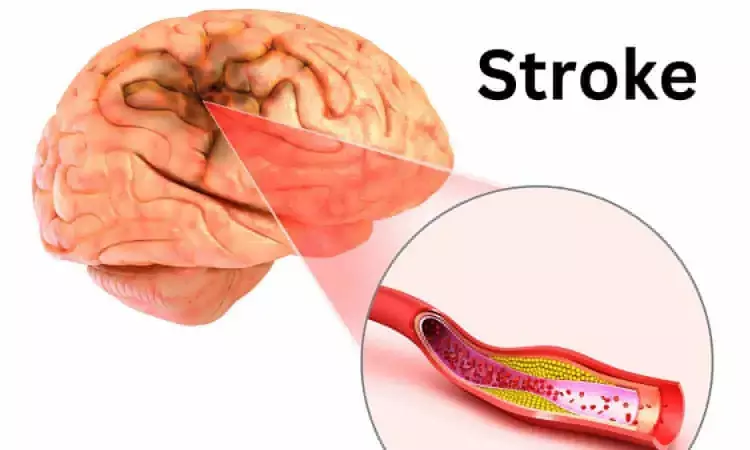- Home
- Medical news & Guidelines
- Anesthesiology
- Cardiology and CTVS
- Critical Care
- Dentistry
- Dermatology
- Diabetes and Endocrinology
- ENT
- Gastroenterology
- Medicine
- Nephrology
- Neurology
- Obstretics-Gynaecology
- Oncology
- Ophthalmology
- Orthopaedics
- Pediatrics-Neonatology
- Psychiatry
- Pulmonology
- Radiology
- Surgery
- Urology
- Laboratory Medicine
- Diet
- Nursing
- Paramedical
- Physiotherapy
- Health news
- Fact Check
- Bone Health Fact Check
- Brain Health Fact Check
- Cancer Related Fact Check
- Child Care Fact Check
- Dental and oral health fact check
- Diabetes and metabolic health fact check
- Diet and Nutrition Fact Check
- Eye and ENT Care Fact Check
- Fitness fact check
- Gut health fact check
- Heart health fact check
- Kidney health fact check
- Medical education fact check
- Men's health fact check
- Respiratory fact check
- Skin and hair care fact check
- Vaccine and Immunization fact check
- Women's health fact check
- AYUSH
- State News
- Andaman and Nicobar Islands
- Andhra Pradesh
- Arunachal Pradesh
- Assam
- Bihar
- Chandigarh
- Chattisgarh
- Dadra and Nagar Haveli
- Daman and Diu
- Delhi
- Goa
- Gujarat
- Haryana
- Himachal Pradesh
- Jammu & Kashmir
- Jharkhand
- Karnataka
- Kerala
- Ladakh
- Lakshadweep
- Madhya Pradesh
- Maharashtra
- Manipur
- Meghalaya
- Mizoram
- Nagaland
- Odisha
- Puducherry
- Punjab
- Rajasthan
- Sikkim
- Tamil Nadu
- Telangana
- Tripura
- Uttar Pradesh
- Uttrakhand
- West Bengal
- Medical Education
- Industry
Perispinal administration of etanercept may not improve quality of life in chronic stroke patients, claims research

An international study has found no evidence to support use of an arthritis medication sometimes prescribed 'off-label' to patients living with the long-term disabling effects of stroke.
Etanercept, an anti-inflammatory drug targeting tumor necrosis factor, received attention from the stroke survivor community after previous studies pointed towards drastic decreases in post-stroke disability.
However, in presenting its findings today at the European Stroke Organisation Conference (ESOC) 2024, the Perispinal Etanercept to improve Stroke Outcomes (PESTO) study found no evidence of any benefit.
PESTO was a phase 2b, international, randomised, placebo-controlled trial, patients with a stroke 1 to 15 years prior to enrollment and a current functional outcome score of at least 2 on the modified Rankin scale, were randomised to a perispinal injection of etanercept or placebo. The researchers primarily focused on the quality of life (QoL) as measured using the Short Form 36 Health Inventory (SF36-HI) at 28 days after injection, but also assessed safety outcomes, functional outcome, fatigue, anxiety and depression, and the effects of an additional dose of etanercept.
In total, 63 patients were randomized to perispinal etanercept and 63 patients to placebo. By 28 days, 53% of the patients in the etanercept group experienced an improvement with 5 points on the SF36-HI versus 58% in the placebo group. (Adjusted Odds Ratio: 0.82; 95% Confidence Interval 0.40-1.67). The rates of serious adverse outcomes were low with 1 reported in each group by day 28. No signals of benefit or harm were seen in the secondary outcome measures, including the second dose analysis.
Professor Thijs, one of the lead investigators, from The Florey and the University of Melbourne, Australia, said PESTO provided important evidence for clinicians. “We can give the stroke survivor community a scientific answer to the question they raised themselves. The trial was very clear in showing no signal at all. That is also an important take-to-the- clinic message.”
Improving life after stroke is a key priority according to the Stroke Action Plan for Europe 2018-2030, but very few medical post-stroke treatment options are available. Etanercept targets tumor necrosis factor, a pro-inflammatory factor which may remain elevated in the central nervous system following stroke due to activated microglia.
Unfortunately, as etanercept has a high molecular weight, it does not cross the blood brain barrier when given systemically. A proposed solution for this problem is to inject it perispinally, followed by a supine, head down position. Although this strategy remains controversial, perispinal etanercept has received a lot of attention from the stroke survivor community because of previous studies pointing towards drastic increases in post-stroke disability.
Professor Thijs said the trial had a unique design. “First of all, this trial was patient-driven, as many stakeholders believe in the potential of etanercept. Second, as the drug is already being applied for a diverse group of stroke survivors, we aimed to mimic this real-world experience by including patients up to 15 years after their stroke and applying the exact same method of perispinal injection as is done in private clinics.”
Ms Brooke Parsons, the consumer member of the PESTO Steering Committee adds: “The trial's consumer-driven approach highlights the demand for innovative healthcare solutions. However, the neutral findings offer clarity, addressing the anticipation for answers and emphasising the significance of scientific rigor in assessing potential treatments amidst previous uncertainty."
Reference:
THIJS V, CLOUD G, GILCHRIST N, ET AL. A MULTICENTER RANDOMIZED PLACEBO-CONTROLLED TRIAL, TO DETERMINE SAFETY AND EFFICACY OF PERISPINAL ETANERCEPT ON QUALITY OF LIFE. Presented at the European Stroke Organisation Conference; 15 May 2024; Basel, Switzerland.
Dr Kamal Kant Kohli-MBBS, DTCD- a chest specialist with more than 30 years of practice and a flair for writing clinical articles, Dr Kamal Kant Kohli joined Medical Dialogues as a Chief Editor of Medical News. Besides writing articles, as an editor, he proofreads and verifies all the medical content published on Medical Dialogues including those coming from journals, studies,medical conferences,guidelines etc. Email: drkohli@medicaldialogues.in. Contact no. 011-43720751


